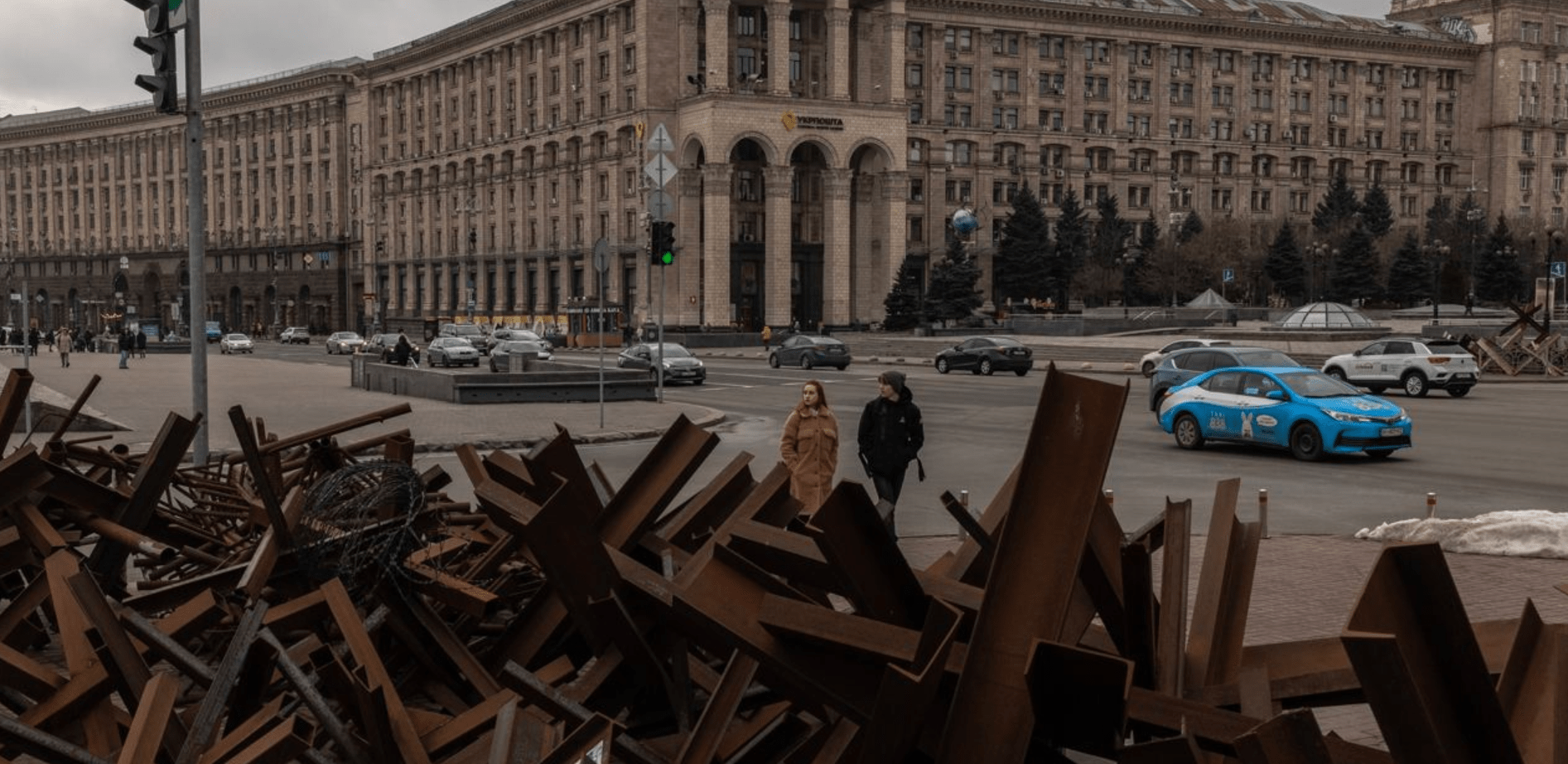I am from Severodonetsk, Luhansk oblast. My house is in the countryside – about 10 kilometers away from the town. For the last three years I have been living and studying in Kharkiv. The week before the war, I came back home from Slovakia.
The war started for me on February 23. I remember texting my best friend the night before it all started. I said “I hear shooting, I’m scared.” He calmed me down, so I could fall asleep.
On February 24, I woke up because of a call from my other best friend from Kyiv. She said she heard sirens and the sound of explosions. I didn’t hear anything.
That morning, my mom was going to work and taking my younger sister to school. My dad went skiing in the Carpathians a week before and he was coming back on February 26. Mom went to town to buy groceries and to meet her clients. I stayed at home with my 13 year-old sister, two dogs, and a cat. At 11:00, we heard a massive explosion near us. I panicked and told my sister to take the cat and go down to the basement. I knew that my dogs wouldn’t go there because of the stairs, so I tried to cram them under the sofa. They couldn’t fit in there. I was crying, my hands were shaking. I locked them in a corridor with no windows. It turned out that Russians bombed an airfield 20 kilometers from our village.
Dad came home two days later. He was volunteering for the first two or three days, but then he wasn’t allowed to go, because the road was mined and Russian forces came really close to Severodonetsk.
We were occupied. Firstly, they cut off the internet. Then, the mobile connection. And lastly, the light. All houses in our village are cottages, so we were almost the only family who lived there. We didn’t have shops there, so we couldn’t restock. We were melting snow on the wood-burning stove to have water. Dad found a well with drinking water.
Every day and night we heard the sounds of artillery shelling, but it almost never was really close. The closest ones were maybe 100 meters away. We had a fridge full of vegetables and fruits, a cupboard with many cereals, and a basement with pickled cucumbers and tomatoes, a few cans of meat, and three cases of potatoes. I used to be angry at my mom for having an excessive amount of food, but now I’m very grateful to her.
We had a power generator and sometimes we turned it on to charge our phones and to watch the news. One day, we turned it on and an artillery shell fell near our neighbor’s garage. Luckily, it didn’t explode. Most of the Russian shells didn’t explode – really high quality!
One day, one of our dogs (Sam) ran away. We had run out of dog food so we had to feed them with fruits from our fridge. He was missing for 48 hours. We were worried about him, but it was too dangerous to look for him. Finally, my dad took our other dog (Rey) and went to look for Sam.
Dad found him in the Russian camp in the next village. They fed him a lot. He was so fat, he couldn’t even get up. We really thought he was going to die because of it. Luckily, he lived. Right after Dad came home, a Ukrainian shell fell right on that village. I remember mom very calmly saying to us: “Girls, when I tell you to go to the basement, you go there immediately. They will come to kill us.” The Russians didn’t come – maybe there was no one to do that.
On March 25, our parents asked us if we wanted to leave. We still had enough food and water, so we didn’t want to. Dad was afraid that when the Russians retreated, the front line might be moved to our village. So, we left home on March 26.
We were leaving from the occupied territories and we had to make a big hook to go to the Ukrainian side. We left our home to go to Ukraine – nonsense!
We went through ten Russian checkpoints and three Ukrainian ones before we reached Kramatorsk. When a soldier at a Ukrainian checkpoint said “Slava Ukraini!” we cried.
